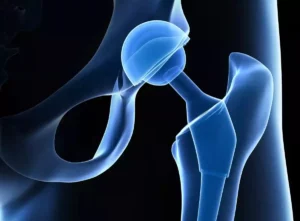Along with boxes of diapers, baby clothes and strollers, you’re likely to spot an infant walker among the gifts at a baby shower. For decades, parents and child care providers have been using walkers for their children as they learned to walk. But are these devices actually dangerous for children?
More than 9,000 children in the U.S. are injured every year by infant walkers. According to a study published in Pediatrics, roughly 230,676 children under the age of 15 months were treated for injuries related to infant walkers between 1990 and 2014. The most common cause of injury was falling down stairs while using a walker. Children were also injured by falling out of their walker, and by touching a dangerous object that the use of the walker allowed them to reach. More than 90% of incidents with infant walkers led to head and neck injuries.
Over the years, emergency room visits related to walkers have significantly decreased. In 1990, there were 20,650 injuries, but that number dropped to 3,201 by 2003. By 2010, the average number of emergency room visits each year due to walkers was 2,165. Safety standards adopted by manufacturers—specifically, making the walker frames wider than standard doorways—seem to be the main reason for the decline in injuries. Stationary alternatives to walkers are another possible reason for the decrease in injuries. Still, more than 2,000 children are still showing up in emergency rooms each year due to walker injuries. These are injuries that could have prevented if infant walkers were not being used.
What are the Benefits of Infant Walkers?
Besides being a source of entertainment for babies, some people believe walkers do as their name suggests, and help children learn to walk. However, that is a misconception. In fact, the American Academy of Pediatrics (AAP) says that walkers can actually do the opposite by delaying a child’s normal motor development. One study evaluated children between 6 and 15 months old, and found that infants who had used a walker sat, crawled and walked later than infants that had not used a walker. They also had lower scores on mental and motor development tests.
Because the AAP says there is no clear benefit of walkers, and there is a serious risk associated with their use, it does not recommend them. In fact, the AAP has recommended a ban on the manufacture and sale of infant walkers. Dr. Gary Smith, author of the Pediatrics study and director of the Center for Injury Research and Policy at Nationwide Children’s Hospital, agrees, saying “There’s absolutely no reason these products should still be on the market.”
Safer Alternatives to Infant Walkers
Infant walkers continue to be a somewhat popular option because they serve as entertainment for infants, as well as a tool to help them move around. But looking at the statistics, the entertainment factor simply does not outweigh the risks associated with walkers. It is far safer for to use other devices for the entertainment and mental development of your child. Stationary activity centers, such as Exersaucers, allow children to move by bouncing and swiveling, and they keep children safely contained. While parents must always supervise children using these devices, it is much easier to keep an eye on a child who is in a stationary device, rather than a mobile one. The stationary design eliminates the risk of stair-related falls—the number one cause of walker-related injuries.
Overall, experts on child health and safety agree that the risks of infant walkers far outweigh the benefits. And while walkers have gotten safer over the years, they still pose a significant danger to children. The more than 2,000 walker-related injuries that occur each year could be avoided if parents simply switched to a safer stationary device for their babies.
Our firm has been handling personal injury cases throughout the California Low Desert and High Desert communities for over 30 years. With a 95% success rate, the California personal injury attorneys at Walter Clark Legal Group will fight to hold those responsible for your loss accountable and win compensation to cover medical bills, lost wages, and pain and suffering. If you have been injured by a defective product and want to discuss your legal options, contact us today for a free consultation with an experienced personal injury lawyer. We have offices in Indio, Rancho Mirage, Victorville, El Centro, and Yucca Valley, and represent clients through the entire California Low Desert and High Desert communities.
DISCLAIMER: The Walter Clark Legal Group blog is intended for general information purposes only and is not intended as legal or medical advice. References to laws are based on general legal practices and vary by location. Information reported comes from secondary news sources. We do handle these types of cases, but whether or not the individuals and/or loved ones involved in these accidents choose to be represented by a law firm is a personal choice we respect. Should you find any of the information incorrect, we welcome you to contact us with corrections.
- What To Do If You Have Been Injured At A Concert In California? Mar 27,2024
- Walter Clark Legal Group Reimburses Thanksgiving Ride Fares Nov 14,2023
- Walter Clark Legal Group Donates Backpacks to Booker T. Washington Elementary School Aug 22,2023
- Walter Clark Legal Group Donates Backpacks to Underserved Students Aug 22,2023
- Walter Clark Legal Group Reimburses Labor Day Ride Fares Aug 21,2023
- 2023 Safe Ride Home Program Jun 21,2023





















